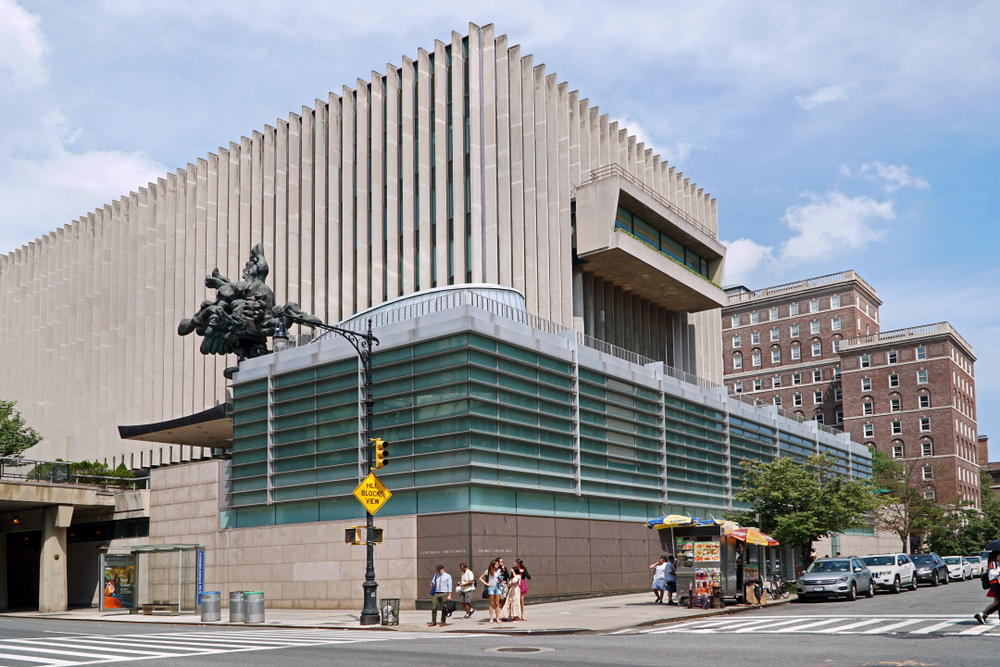Misconduct complaint tossed against federal judges who pledged not to hire clerks from Columbia

Federal judges didn’t violate ethical rules by refusing to hire law clerks from Columbia University or Columbia Law School, according to a review panel of the judicial council of the 5th U.S. Circuit Court of Appeals at New Orleans. (Photo from Shutterstock)
Federal judges didn’t violate ethical rules by refusing to hire law clerks from Columbia University or Columbia Law School, according to a review panel of the judicial council of the 5th U.S. Circuit Court of Appeals at New Orleans.
The review panel affirmed dismissal of an ethics complaint filed by a state prisoner against a federal appeals judge and seven district judges from within the circuit. The cleared federal appeals judge appears to be Judge James C. Ho.
The judges had refused to hire Columbia grads as clerks because of the school’s handling of disruptions caused by pro-Palestinian protesters. The boycott applied to the entering undergraduate and law school class of 2024 “absent extraordinary change.”
A letter signed by the judges said they lost confidence in Columbia because of its inaction addressing disruptors who “threatened violence, committed assaults and destroyed property.” The letter asserted that professors and administrators were “on the front lines of the campus disruptions, encouraging the virulent spread of antisemitism and bigotry.”
In an Aug. 2 order, the review panel affirmed a June 21 decision by 5th Circuit Chief Judge Priscilla Richman.
“Judges do not violate ethical rules or standards when they exercise discretion in refusing to hire law clerks who may have engaged in unlawful conduct or violation of a university’s rules,” Richman wrote. “Likewise, the judges (regardless of whether they are correct in their assumptions) have discretion to refuse to hire law clerks who graduated from a university that does not foster what the judges believe to be important aspects of higher education, such as viewpoint diversity and tolerance of differing viewpoints.”
A refusal to hire law clerks from Columbia, without more, is not evidence that a judge cannot remain impartial toward attorneys or parties who graduated from the university, Richman said.
Judges have many qualifications for hiring law clerks, Richman said. They may hire only graduates from top 10 law schools, require background checks or require high grades.
“But such hiring qualifications do not mean the judge is necessarily biased against attorneys or litigants appearing before them who do not meet the specified metrics,” Richman said.
Richman also found that the judges did not violate the ban on engaging in political activity.
“While the subject of the protesters’ cause has been viewed as highly political, the judges’ reasoning behind their boycott is not,” Richman said.
Rather than expressing political views, the judges are expressing disapproval “of unlawful and rule-breaking conduct in which some of the protesters reportedly engaged and of the university’s response to the disruptions on campus,” Richman wrote.
Five judges in other circuits, including Judge Elizabeth L. Branch of the 11th Circuit at Atlanta, had also signed the letter, but they were not targeted in the 5th Circuit ethics complaint.
Besides Ho, the seven judges within the 5th Circuit who signed the letter were Judge Alan Albright, Judge David Counts, Judge James W. Hendrix, Judge Matthew J. Kacsmaryk, Judge Jeremy D. Kernodle, Judge Brantley Starr and Judge Drew B. Tipton.
Besides Branch, judges outside the 5th Circuit who signed the letter were Judge Stephen Alexander Vaden, Judge Matthew H. Solomson, Judge Tilman E. Self III and Judge Daniel M. Traynor.
All 13 judges who signed the letter are appointees of former President Donald Trump.
Other publications covering the decision were Law.com, Bloomberg Law, Reuters and Law360. How Appealing linked to news coverage and the review panel decision.
Write a letter to the editor, share a story tip or update, or report an error.



